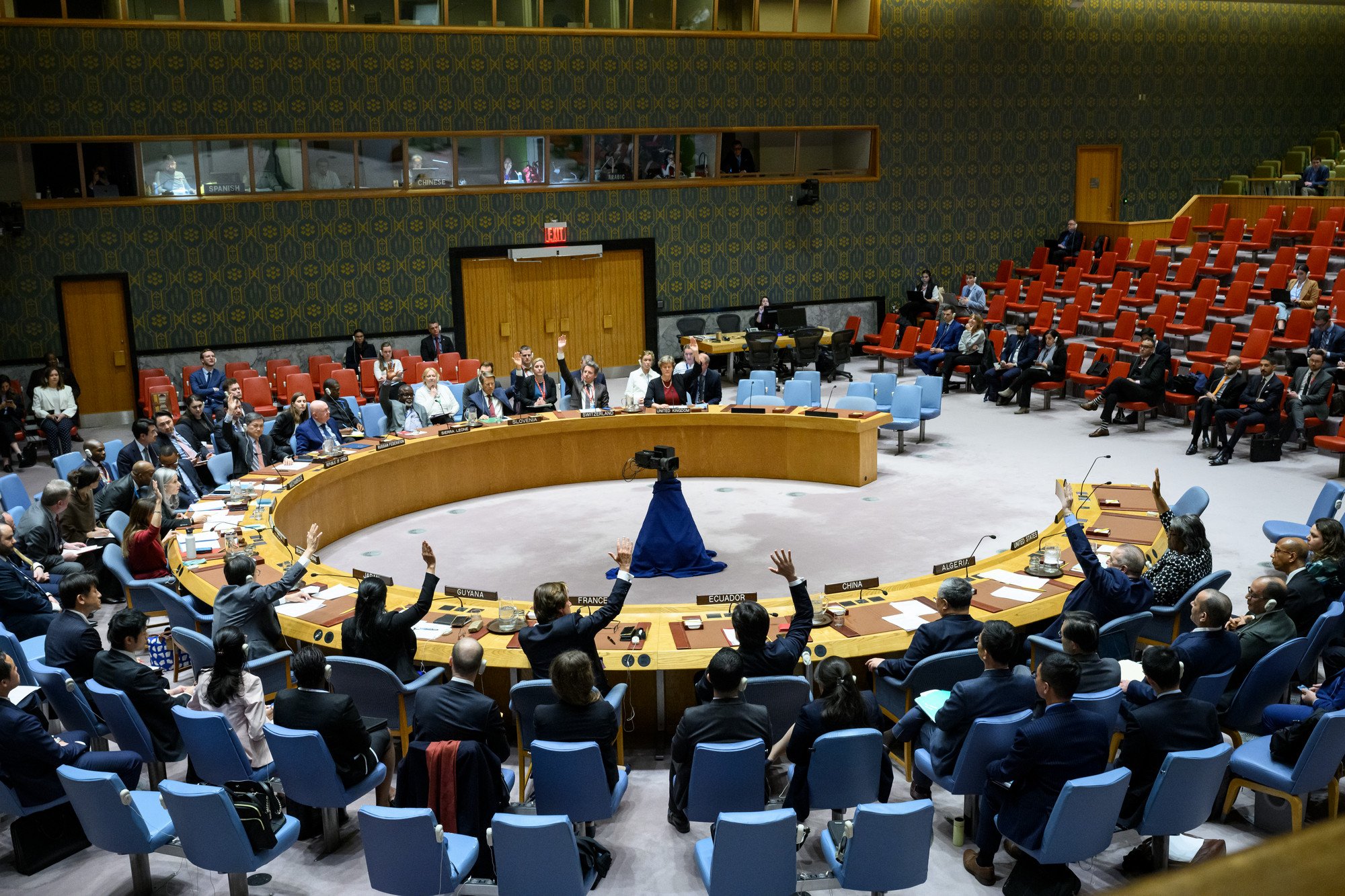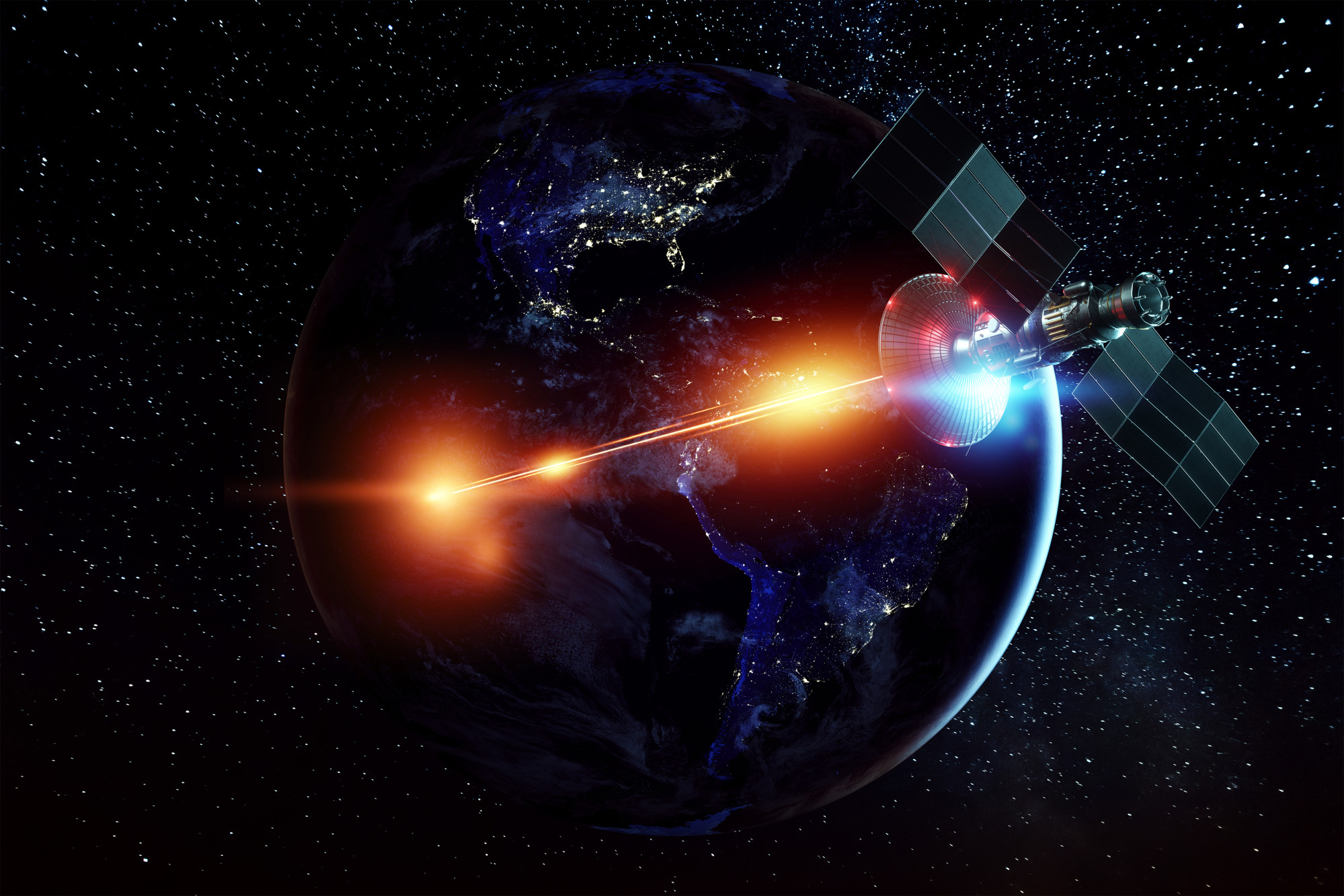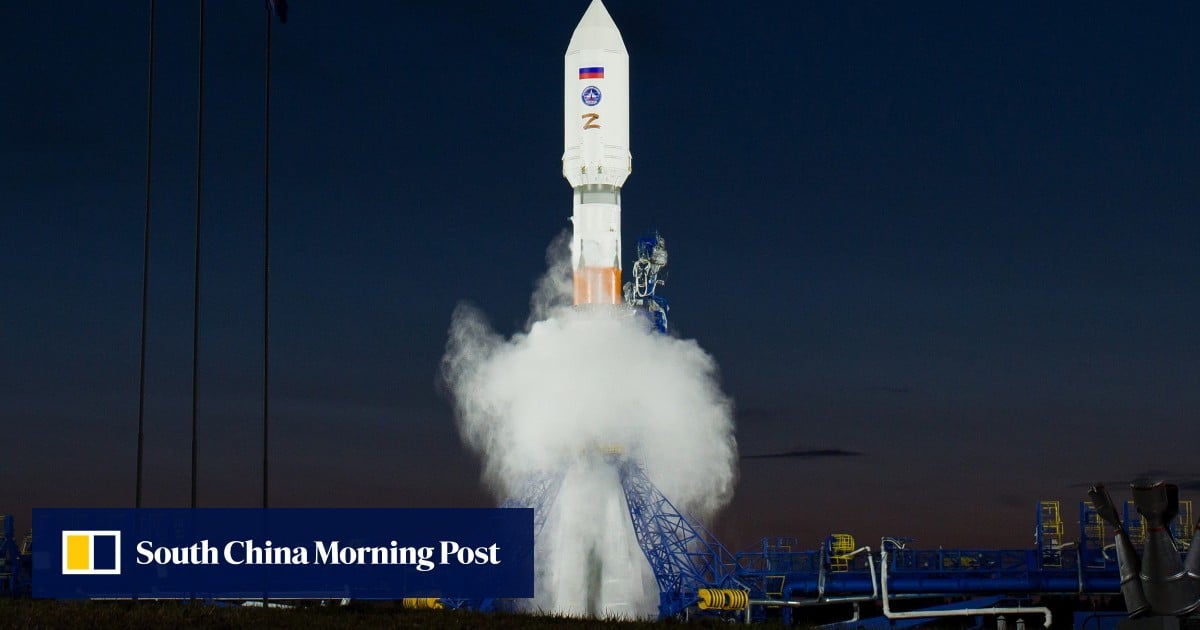The US and its allies said the language that the 15-member council debated on Monday was simply meant to distract the world from Russia’s true intention: weaponising space.

“The culmination of Russia’s campaign of diplomatic gaslighting and dissembling is the text before us today,” US deputy ambassador Robert Wood told the council.
He also accused Russia of launching a satellite on Thursday into low Earth orbit that the US “assesses is likely a counterspace weapon presumably capable of attacking other satellites in low Earth orbit”.
“Russia deployed this new counterspace weapon into the same orbit as a US government satellite,” said Wood, adding that the May 16 launch followed Russian satellite launches “likely of counterspace systems to low Earth orbit” in 2019 and 2022.
Russia’s UN ambassador, Vassily Nebenzia, denied that his nation was trying to mislead the world. Backed by China and others, he called the vote “a unique moment of truth for our Western colleagues”.
“If they fail to support this, then they will clearly show that their main priority remains keeping freedom of the way for themselves to expedite the militarisation of outer space,” Nebenzia said.
Every nation says it wants weapons barred from space, and council members repeated that Monday. But when it came time to vote, the council evenly split 7-7 between backers of the US and of Russia, with Switzerland abstaining.

The measure failed under UN rules because it didn’t receive nine votes.
“We have this negative, squabbling attitude among leading space powers that seem more interested in scoring points off their adversaries rather than engaging in constructive dialogue,” said Paul Meyer, Canada’s former ambassador for disarmament and a fellow at the Vancouver-based Outer Space Institute.
Since before humans left the Earth, the world’s most powerful nations have worried about their enemies using outer space to attack them.
The Soviet Union and the United States sent men into space in 1961. Six years later, the Soviets, the US and the United Kingdom signed a treaty declaring outer space a global commons that could be used for only peaceful purposes.
Even though nations could not wage war without the space-based communications, reconnaissance and weather tools that satellites and spacecraft provide, the 1967 Outer Space Treaty requires them to keep their weapons on Earth.
“You realise what an important conflict-prevention measure that was,” Meyer said.
It’s become even more important, he said, as a growing number of nations have moved into space. About a dozen have the capacity to launch spacecraft, and about 80 have their own satellites, not to mention the private companies with assets in orbit.
All of that could be at risk if a conflict in space causes an explosion and shrapnel, which could disable the vital systems that millions of people around the world depend on.
“A lot of people have a stake in being able to operate in space safely and securely,” Meyer said.
The US has gathered highly sensitive intelligence about Russian anti-satellite weapons that has been shared with the upper echelons of government, four people who had been briefed on the intelligence said in February.
The people, who were not authorised to comment publicly, said the capability was not yet operational.
Additional reporting by Reuters

